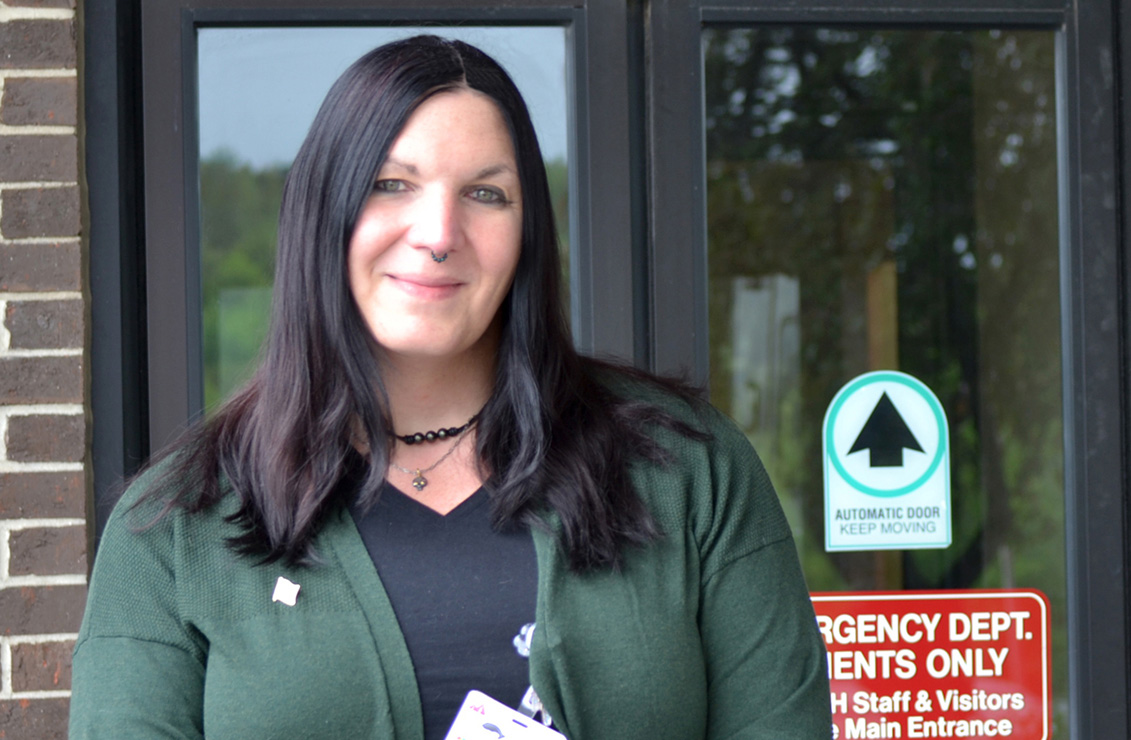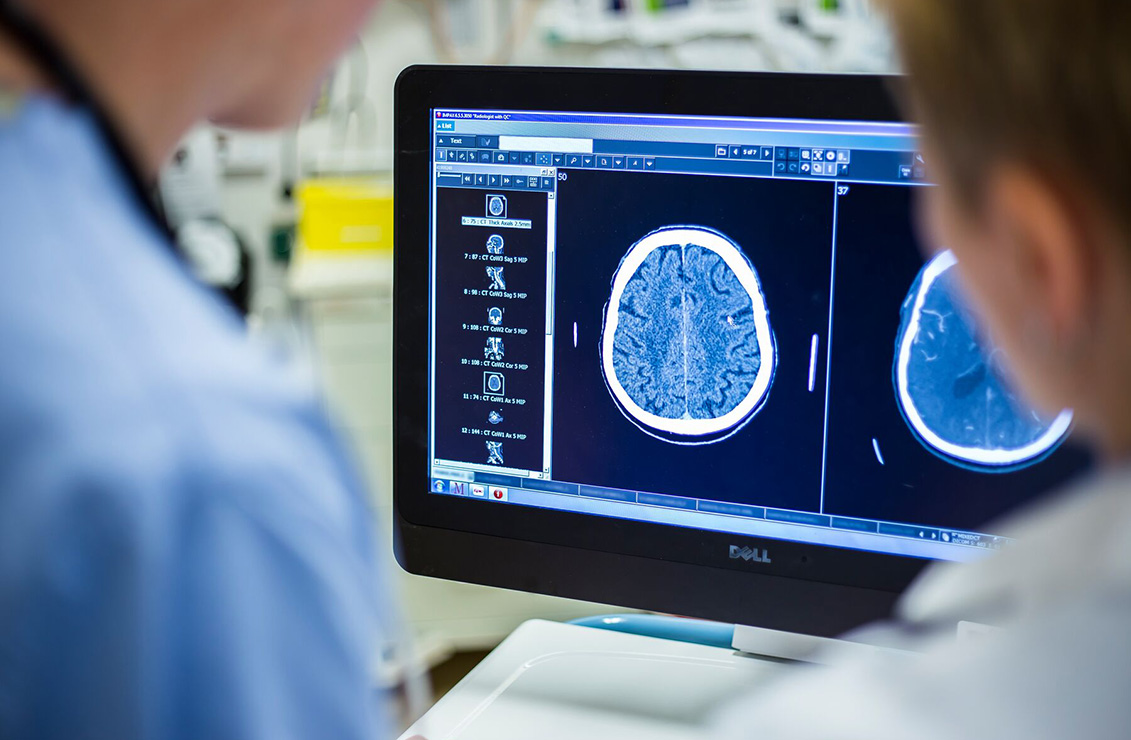Telestroke Network Improves Timely Access to Treatment

Jodi Conrad, DO, FMH, emergency department medical director and physician
Through the MaineHealth Telestroke Network (MTN), stroke experts from Maine Medical Center (MMC) provide emergency consults for stroke patients at partner hospitals 24/7, bringing the expertise of top neurologists to community emergency departments when it is needed most.

Neurologists in the emergency department
Using two-way videoconferencing and electronic transfer of computed tomography (CT) scans, telestroke allows MMC doctors to remotely evaluate patients and provide real-time guidance to providers in more rural hospitals. This reduces the delay of specialized care, which is critical to effective stroke treatment.
The network first went live at LincolnHealth, followed by Mid Coast Hospital and Waldo General Hospital in 2015. Pen Bay Medical Center, Southern Maine Health Care, Redington Fairview and Memorial Hospital in New Hampshire joined between 2016 and 2020, while Stephens Memorial Hospital is on target to join the MTN in October 2023.
Franklin Memorial Hospital (FMH) joined the MTN in September 2022. According to Brian Chipman, MMC telestroke program manager, “FMH already had a robust stroke treatment process in place, so the integration of telestroke was easy and seamless.” Chipman added that FMH has the fastest door-to-CT scan times across the telestroke network.
Every Second Counts
The best treatment for a stroke is to stop it while it is happening. The longer a patient waits for treatment, the more damage there may be to their brain. With an average consult callback time of four minutes, the MTN system works to speed up stroke diagnosis and treatment so more patients are able to receive stroke care within the 4.5-hour window needed for thrombolytic administration.
During its first year of operations, there were 34 consult requests from Franklin, six of which resulted in thrombolytic medication being given. Thrombolytic therapy works to dissolve the clot and improve blood flow to the part of the brain being deprived.
NorthStar EMS, the region’s ambulance service, is a valuable partner in stroke treatment at Franklin. Accurately identifying suspected strokes in the field, initiating appropriate prehospital stroke protocols, and notifying the emergency department in advance allows care team members to prepare and mobilize resources prior to the patient’s arrival. This results in expedited CT brain imaging completion and interpretation times. Early access to brain imaging helps in confirming the diagnosis and determining the appropriate course of treatment.
“Telestroke implementation has allowed us to access neurologists who are the experts in stroke care in a rapid manner. They provide a thorough examination of the patient, review the records, converse with patients and families regarding risks and expected benefits of proposed treatments and give input to the decision-making process.”
– Jodi Conrad, DO, FMH emergency department medical director and physician
The MTN bridges the gap between stroke specialists and patients in remote areas. Its emphasis on collaboration, education and continuous improvement ensures that patients receive optimal care, regardless of where they live in Maine.
MaineHealth Telestroke Network
Time is of the essence when dealing with a stroke. Calling 9-1-1 and getting medical help promptly greatly improves the chances of a positive outcome. Learn more about the MaineHealth Telestroke Network.

